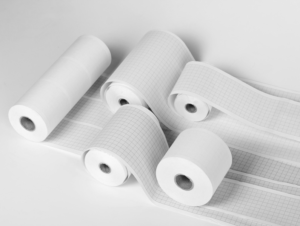 On February 13, 2018, the Russian Constitutional Court issued a judgement in which it checked whether the existing regime of parallel import was in line with the Constitution.
On February 13, 2018, the Russian Constitutional Court issued a judgement in which it checked whether the existing regime of parallel import was in line with the Constitution.
Although grey import has remained illegal, the burden of proof has dramatically changed: now infringers have almost 50 legal reasons to pay less and minimize the risks of customs seizure.
The constitutional review was initiated by PAG, a notorious Russian importer of labeled medicine goods. The importer was sued by Sony Corporation in 2014, when the Japanese company was notified by a customs post that the PAG was trying to import 60 rolls of medical print paper bearing the Sony trademark. Although the paper was genuine, Sony found its trademark infringed by PAG buying the goods in Poland and importing them into Russia in circumvention of the official distribution scheme.
Based on Sony’s injunction request, the grey goods were seized by a local competent court. When considering the case, the court and three superior instances declined PAG’s argument that the goods were original, awarded Sony with a compensation and ordered to seize and destroy the grey goods.
These remedies are available due to the regime of a national/regional exhaustion (Russian Civil Code, art. 1487): parallel import is illegal unless the product was first sold by or with the consent of the trademark holder specifically in Russia or the Eurasian Union. PAG objected, referring to the principle of proportionality: grey goods should not entail the same liability (seizure and destruction, significant compensation) as counterfeit goods.
The Constitutional Court supported PAG’s position. Although it found the regime of national/regional exhaustion per se valid and enforceable, it drew a clear distinction between liability imposed for “classic” counterfeit and parallel import, and introduced two new conditions for successful cases against parallel importers (neither of which had appeared in previous case law, including the key Nestle Waters case):
- Quality standard
Grey goods could be seized and destroyed, should a trademark holder prove inadequate quality or risk of negative influence on human health, nature preservation or cultural values.
- Good faith standard
A trademark holder may not enjoy legal protection against a parallel importer, if he acts in breach of good faith. Good faith heavily depends on pricing policy: a substantial difference between the prices in Russia and other jurisdictions must be economically explained before the court. The good faith standard is even higher in case of vital goods (drugs, medicine equipment) and the trademark holder’s compliance with anti-Russian sanctions policy.
Although the judgment should not influence previously decided cases against parallel importers, its ratio decidendi will dramatically change the scenario for routine parallel import disputes. Trademark holders have to become proficient in distinguishing shades of grey import: not every passionate attempt to combat grey goods will be successful or economically sensible.
_____________________________
To make sure you do not miss out on regular updates from the Kluwer Trademark Blog, please subscribe here.


